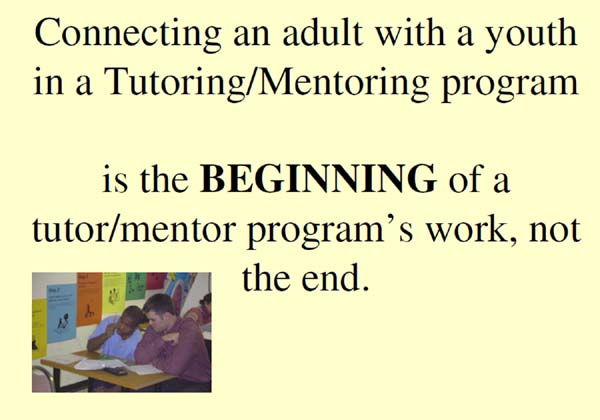Expanding Role of Volunteers
If we think of tutor/mentor programs as a strategy to expand the social capital available to youth and families in high poverty neighborhoods, what roles might volunteers take to make such programs more available in more places?
This T
/MC forum discussion points to a study of the
Big Brothers Big Sisters program shows that many volunteers fear that they are not enough to overcome the challenges facing youth who live in high poverty neighborhoods.

This
PDF essay shows T/MC focus on transforming the volunteer as part of the tutor/mentor process. The challenges of youth living in poverty are so daunting that a small dose of tutoring or mentoring in a short period of time may not be enough to help the youth build aspirations and habits that overcome the negative influences of the high poverty neighborhood where he/she lives.
This
concept map illustrates that youth need a variety of age-appropriate supports as they grow up. This
PDF essay offers the same ideas. In the Tutor/Mentor Institute strategy enlisting volunteers from beyond poverty, bonding them with youth and programs and educating them to become leaders, ambassadors and evangelists who expand the resources available is a critical component of what we feel needs to happen.
In order for tutor/mentor programs to be available in many places and offering more age-appropriate learning, mentoring and experience opportunities, adults beyond volunteer need to do more. Many of the ideas in the
Tutor/Mentor library focus on strategies that increase the number of adults go get involved, and stay involved for generations.
What strategies exist in your non profit, school or community to expand the number of adults who support non-school tutoring/mentoring and learning as part of a long-term birth-to-work mentoring strategy.